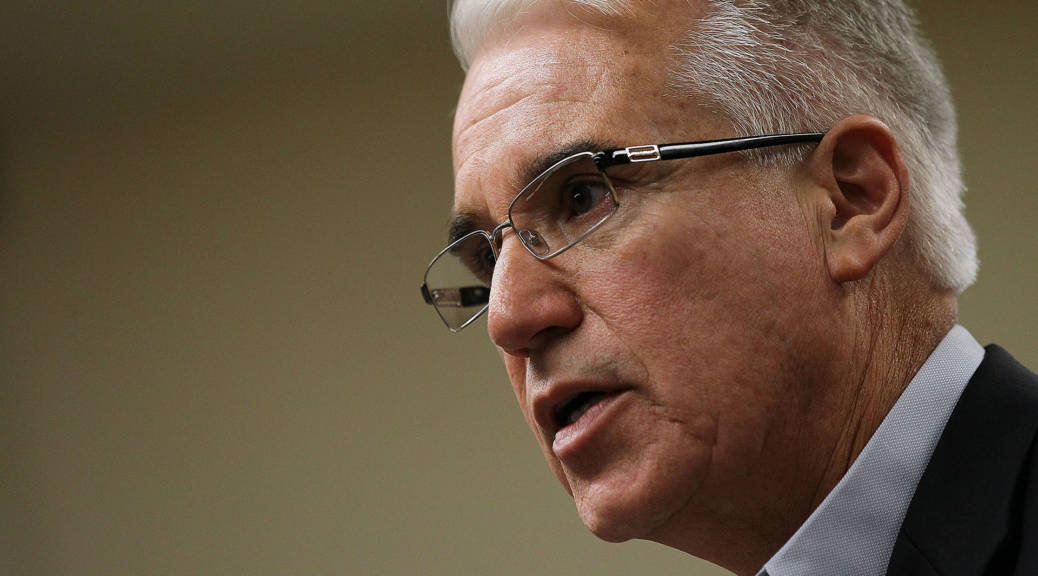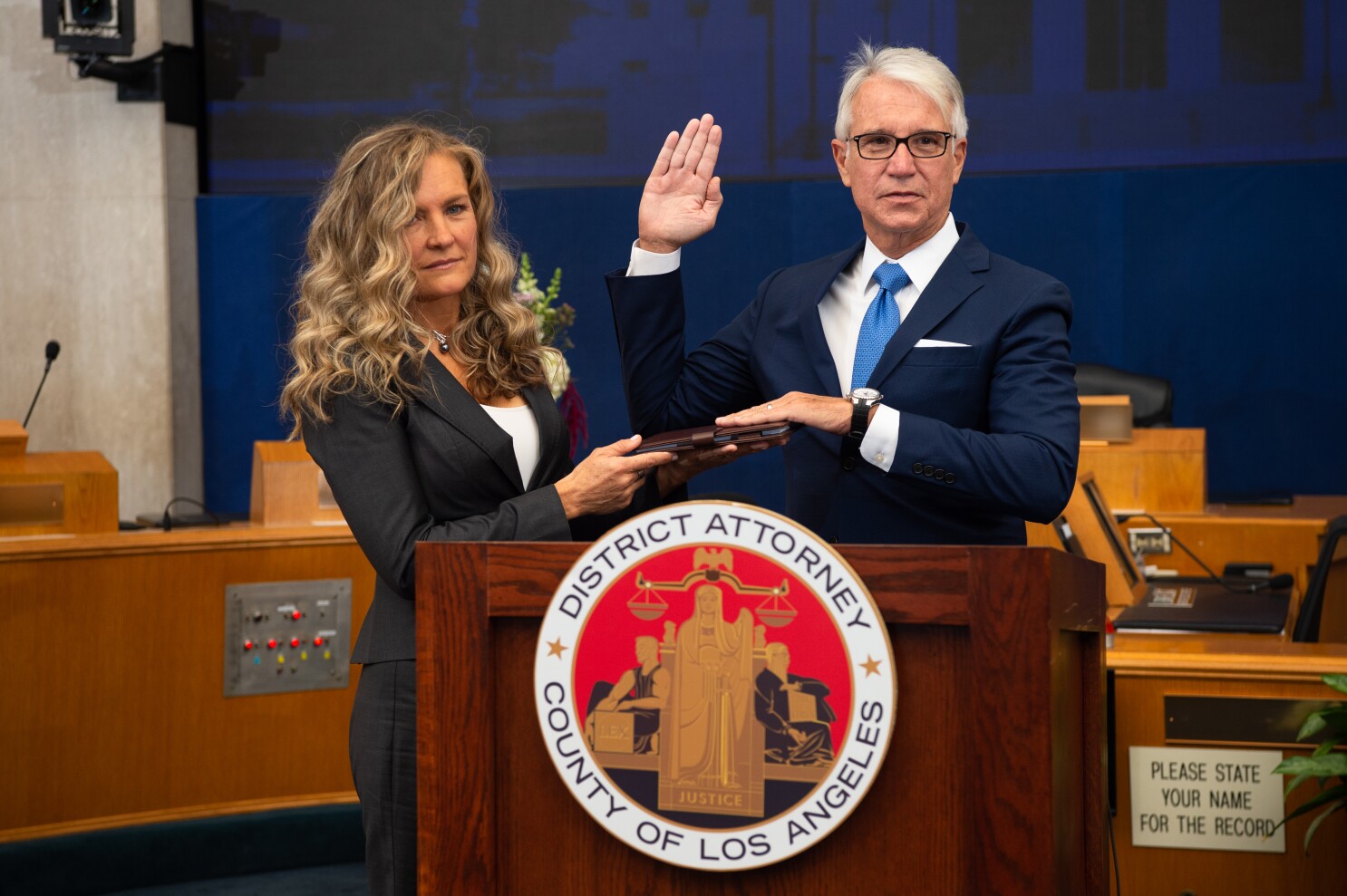Primer – Officers of the Court: any person who has an obligation to promote justice and effective operation of the judicial system, including judges, the attorneys who appear in court, bailiffs, clerks, and other personnel. As officers of the court lawyers have an absolute ethical duty to tell judges the truth, including avoiding dishonesty or evasion about reasons the attorney or his/her client is not appearing, the location of documents and other matters related to conduct of the courts.

DA George Gascon is and was supported by BLM along with more than $19 million has been pumped into the contentious Los Angeles County district attorney race, with donors lining up on opposing sides of a stark ideological divide between incumbent Jackie Lacey and challenger George Gascón.
Spending in the race intensified a few weeks before Election Day, when New York billionaire George Soros and Bay Area philanthropist Patty Quillin combined to put millions of dollars behind Gascón. Quillin’s husband, Netflix CEO Reed Hastings, has also helped Gascón maintain a commanding fundraising lead over Lacey, who has support from law enforcement unions up and down the state.
In the weeks before the general election, donations from Gascón’s supporters – including $3.4 million from the criminal justice reform group Color Of Change – helped the challenger take a large fundraising lead.
LATimes:The union representing Los Angeles County deputy district attorneys on Wednesday sued Dist. Atty. George Gascón, alleging that the dramatic changes he has brought to the nation’s largest prosecutorial office have defied state law and forced rank-and-file prosecutors to violate their oaths of office.
The lawsuit is the most public expression yet of the pushback Gascón has fielded from within his own office since being sworn in Dec. 7. It focuses on his so-called special directives that ordered his deputies to forgo sentencing enhancements.
The union, which represents about 800 prosecutors, is seeking a court order that would compel Gascón to rescind the directives and declare them “invalid and illegal,” as well as a temporary restraining order that would bar Gascón and his administration from enforcing the directives.
Gascón’s policies have “placed line prosecutors in an ethical dilemma — follow the law, their oath, and their ethical obligations, or follow their superior’s orders,” wrote the union’s lawyer, Eric M. George.A spokesman for Gascón had no immediate comment on the lawsuit.
On his first day in office, Gascón announced his deputies would no longer seek enhancements that — if proved — lengthen defendants’ prison sentences under certain circumstances, such as if they committed a crime to a gang’s benefit or if they had a criminal history.
Initially, the prohibition extended to enhancements for hate crimes, sex trafficking, financial crimes and elder and child abuse, but Gascón has since modified his directives to allow such enhancements. His deputies are still barred from seeking enhancements for prior strikes, committing a crime that benefits a gang, using a firearm and any special circumstance allegation that would send a defendant to prison for life without parole.
The union argues that prosecutors should pursue or forgo sentencing enhancements using “case-by-case discretion,” basing their decisions on the circumstances of a crime and a defendant, not “rubber stamp blanket prosecutorial policies barring the wholesale enforcement of criminal laws.”
The union asserts that Gascón’s prohibition on enhancements for prior strikes violates the state’s three strikes law, which, in the union’s view, requires prosecutors to seek longer sentences for defendants with previous convictions. Gascón “enjoys wide — but not limitless — discretion,” George wrote; he may believe such enhancements do not protect public safety, but he has no authority to circumvent lawmakers and legislate “by fiat,” the lawsuit says.
Gascón has said he was elected with a mandate to overhaul an outdated, heavy-handed approach to law and order that hasn’t proved effective in protecting the public. He promised during the campaign to no longer charge gang enhancements, which have come under scrutiny after several Los Angeles Police Department officers were charged over the summer with falsifying records that misrepresented people they had stopped as gang members and associates.
In a statement released by Stanford’s Three Strikes Project, the program’s director, Michael Romano, and two other law professors said the California Supreme Court has held that district attorneys have “complete authority” to enforce state laws within their jurisdiction.
Romano, Erwin Chemerinsky, the dean of UC Berkeley Law School, and David Mills, a professor at Stanford Law School, said in the statement that Gascón’s policies will make Los Angeles safer and reduce “epidemic” levels of incarceration. The union’s lawsuit, they added, “is more reflective of their longstanding opposition to reform and the will of millions of Angelenos than it is the legality of DA Gascón’s directives.”
The union also contends that Gascón, a local executive branch official, is encroaching on the authority of the courts in ordering his deputies to move to withdraw enhancement allegations. If a judge refuses those motions — as several have in recent weeks — line prosecutors have been instructed to file new charging documents without the enhancements. In doing so, the union argues, the district attorney’s office is making an end-run around the courts’ authority.
This scenario played out in a downtown Los Angeles courtroom Monday. A deputy district attorney, reading from a script, said he was seeking to dismiss enhancement allegations in a murder case against a defendant for belonging to a gang and using a firearm. When the judge denied the motion, the prosecutor said he would file new charges without the enhancements.
“I’m not going to accept an amended information,” Judge Mark S. Arnold said. “Legally, there’s no justification. There’s no defect.”



 Latin Kings
Latin Kings Vice Lords
Vice Lords